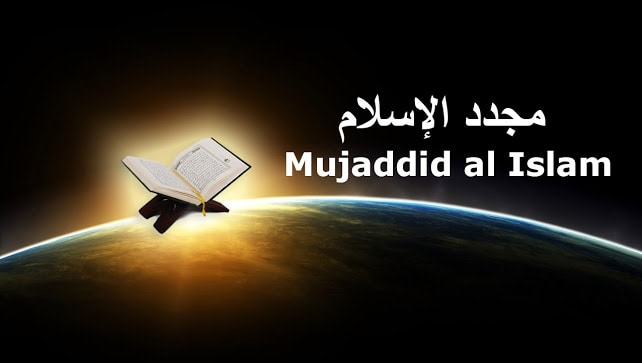OPPOSITION TO SHARIA ARBITRATION IN SOUTHWEST NIGERIA: A CASE OF IGNORANCE OR INTOLERANCE? By Kazeem A. Oyinwola LL.M, ABR, MCIArb.
The recent opposition to the establishment of Independent Sharia Arbitration Panels in some parts of Southwest…
The recent opposition to the establishment of Independent Sharia Arbitration Panels in some parts of Southwest Nigeria has reignited debates about religious tolerance, legal pluralism, and the role of arbitration in dispute resolution. The opposition ostensibly began in Oyo State then spread to Ekiti State and now in Ogun State. Unfortunately, much of the opposition appears to be driven by ignorance of what arbitration is and intolerance toward Islamic legal principles rather than any legitimate legal or constitutional concerns.
Arbitration is one of the legally recognized alternative dispute resolution mechanisms globally. It is a method that allows parties to voluntarily submit their disputes to an agreed-upon arbitrator(s) for settlement instead of going through the rigour of litigation in conventional courts. It is not peculiar to Nigeria, and it is also not strange or unusual in Nigeria. The Arbitration and Mediation Act, 2023 is the primary legislation providing clear legal basis for arbitration and mediation in Nigeria. It provides a unified legal framework for fair and efficient settlement of dispute including the practice and procedure of arbitration in Nigeria. Thus, parties are at liberty to decide the means by which their dispute is to be resolved as long as it is within the confines of the law.
Like every other arbitration body, Sharia Arbitration panels are not courts. They function like any other arbitration mechanism. They are set up to resolve civil disputes between consenting parties based on Islamic principles. Therefore, as long as the arbitration process adheres to Nigerian law, there is obviously no legal basis for its opposition or rejection. Numerous independent arbitration mechanisms exist in Nigeria. These include customary arbitration among ethnic communities, faith-based arbitration and industry-specific arbitration mechanisms, such as the Lagos Court of Arbitration and the Institute of Construction Industry Arbitrators. These arbitration bodies operate independently without government interference. Why then is the establishment of a Sharia-based arbitration system facing backlash? Could the backlash stem from the mere inclusion of the word “Sharia,” which mostly triggers unfounded fears rather than rational debate?
Section 277 of the Nigerian Constitution 1999 allows for the establishment of Sharia Courts of Appeal in any state that desires it. The Sharia Court of Appeal has jurisdiction to administer and determine any question of Islamic personal law relating to marriage, guardianship of infant, waqf, gift, succession etc. This provision of the constitution provides a legal and constitutional foundation for the administration of Islamic personal in the country. Therefore, it is legally false and constitutionally unfounded to insinuate or opine that Islamic personal law which is part of Sharia is strange or alien to any part of Nigeria.
Furthermore, section 65 of the Arbitration and Mediation Act, (AMA) 2023 provides that the:
“Act does not affect any other law by virtue of which certain disputes may (a) not be submitted to arbitration; or (b) be submitted to arbitration only in accordance with the provisions of that or another law.”
The phrase ‘the provisions of that or another law’ in section 65 of the AMA, 2023 includes customary law and customary arbitration, as well as Islamic (or Sharia) arbitration. In the case of Agu v. Ikewibe (1991) 3 NWLR (Part 180) 385, the Supreme Court affirmed the validity of customary arbitration. Yes, customary arbitration! It may be argued that Islamic law or Sharia is not the same as customary law. However, by virtue of the combined provisions of sections 277, 38 and 315(3) of the 1999 Constitution read together with section 65 of AMA 2023, it can safely be submitted that Islamic or Sharia arbitration is a legally recognized dispute resolution mechanism in Nigeria. Section 65 of AMA 2023, which states that ‘this Act does not affect any other law by virtue of which certain disputes may…be submitted to arbitration only in accordance with the provisions of that or another law,’ provides a legal foundation for the establishment and recognition of other arbitration methods, including Christian, customary or Islamic arbitration.
One of the key features of arbitration is party autonomy. Sharia Arbitration also provides for party autonomy. The principle of tahkim underscores this in Islamic (Sharia) arbitration. Sharia arbitration is a voluntary dispute resolution arrangement that relies on parties’ autonomy and consent. It does not compel or force anyone, Muslim or non-Muslim, to submit dispute to it and so, it should not hurt or upset anyone. Its establishment and recognition do not in any way require the legal approval of any traditional ruler or constitutional fiat of any state governor. Moreover, there is no legal impediment in Nigeria today either under the 1999 Constitution or the Arbitration and Mediation Act, 2023 proscribing the establishment or recognition of Islamic or Sharia Arbitration. As long as awards from such arbitration meet legal requirements, they are enforceable, just like those from customary arbitration.
I wish to emphasis that arbitration does not replace the judiciary; it does not eliminate the court; rather it complements it. Other religious and cultural alternative dispute resolution mechanisms exist even in Nigeria without controversy. For instance, the Olowu Mediation Centre located at the Itapa Olowu area of Oke Ago-Owu in Abeokuta was inaugurated in January 2024 for settlement of civil disputes among Owu communities and their neighbours through Alternative Dispute Resolution scheme; the Conflict Resolution Commission of the Catholic Diocese of Enugu arbitrate disputes in any part of the diocese and submit recommendations to the bishop; the Justice, Development and Peace Movement (JDPM) of the Catholic Diocese of Oyo State also offers Alternative Dispute Resolution as part of its focus etc. Why then the hullabaloo and avoidable cacophony about the establishment of an Independent Sharia Arbitration panel?
Religious arbitration is not unique to Islam. It is not even peculiar to Nigeria or Southwest. In the United States, the country whose democracy we claim to copy, there are many Christian and even Jewish ADR establishments such as Crossroads Resolution Group LLC, the Christian Conciliation Service and A Beth Din (or Beit Din), an official Rabbinical Court (forum) of Jews. Beth Dins serves the Jewish community in the United States as a forum for obtaining Jewish divorces, confirming personal status, and adjudicating even commercial disputes stemming from business and community issues. In United Kingdom there are Diocesan Marriage Tribunal of the East Anglia, Marriage Tribunal (National Tribunal for Wales) of the Archdiocese of Cardiff etc. In fact, in the case of Javrai v. Hashwani [2011 UK SC. 40], in Riv. Arb., 2012, 621, the UK Supreme Court on 27 July 2011 held that the requirement for arbitrators to belong to a certain religion was not unlawful, as the arbitration in question was based on Ismaili Muslim principles, making religion relevant to the arbitration process.
Every well-informed Nigerian knows that the needless opposition to the establishment of Sharia Arbitration Panels in Southwest Nigeria is largely a product of misinformation, intolerance or stark ignorance. These panels are legally permissible, voluntary, and not different from other arbitration mechanisms that operate in the country. Rather than resisting or opposing their establishment on emotional or prejudicial grounds, the focus should be on ensuring they operate transparently and within the legal framework. Faith-based arbitration is not strange or alien to Nigeria’s legal landscape and Islamic or Sharia Arbitration is not a taboo. What happens to the principle of choice? Shouldn’t individuals be free to select the dispute resolution mechanism they trust? Why are we suffocating the Muslims in the Southwest for desiring to establish an arbitration panel to resolve their civil disputes? Shouldn’t they be allowed to breath too?
Both the state and the non-state actors championing the hostility toward the establishment of Sharia Arbitration panel need to be objective; they need to remove the lens of ignorance and the spectacle of intolerance with which they are viewing the initiative. We have a duty to educate ourselves. Nobody is entitled to be ignorant or intolerant. Legal pluralism is a hallmark of a diverse society and the earlier we embrace this reality the better for our society. Just as customary arbitration, Christian mediation, and professional arbitration bodies are accepted, so too should Sharia Arbitration Panels be allowed to function without undue interference or discrimination. I hope people will see through the dust of hostility currently clouding the atmosphere and recognize that Sharia Arbitration is not uniquely contentious but part of a broader framework of faith-based dispute resolution.
Kazeem A. Oyinwola (LL.M, ABR, MCIArb) is a legal practitioner, a member of the Chartered Institute of Arbitrators (UK), and a member of the Business Recovery and Insolvency Practitioners Association of Nigeria. He can be reached at [email protected].





